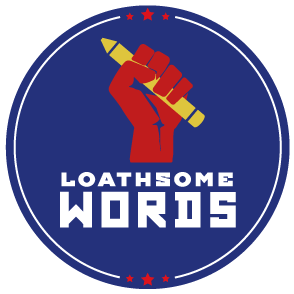This is a column about Diana Ross. Bear with me.
Loathsome phrase of the day: reach out to (business-speak sense of contact or get in touch with). #loathsomewords
— Bill O'Sullivan (@billmatto) March 7, 2016
 Reach out, when used in the way that inspired that tweet, is jargon, which my dictionary defines as “nonsensical, incoherent, or meaningless talk” and “the specialized . . . language of a trade, profession, or similar group.” I most often think of jargon as a manufactured expression, a result of someone (there has to have been someone who first used it, though it’s rarely possible to pin down who or when) trying to prettify a familiar workhorse. The buffed-over veneer that results often, in fact, distracts from meaning.
Reach out, when used in the way that inspired that tweet, is jargon, which my dictionary defines as “nonsensical, incoherent, or meaningless talk” and “the specialized . . . language of a trade, profession, or similar group.” I most often think of jargon as a manufactured expression, a result of someone (there has to have been someone who first used it, though it’s rarely possible to pin down who or when) trying to prettify a familiar workhorse. The buffed-over veneer that results often, in fact, distracts from meaning.
Townhome is another example, invented by the real-estate industry with the cooperation of Madison Avenue and now seeping into general use—an insipid, floral-scented update of the more dignified townhouse. I tweeted about that, too, after watching a show called 10 Towns That Changed America on PBS. Following a minor substantive quibble about the show, I had a more, um, personal reaction:
And if narrator said "townhomes" one more time, I would have screamed. #loathsomewords
— Bill O'Sullivan (@billmatto) April 20, 2016
Don’t get me started on rowhome—yeah, I’ve seen it.
Or program. Restaurants and bars now have cocktail programs, coffee programs. Somewhere there’s a cheese program. A rugelach program is surely around the corner. These are not PowerPoint presentations but menus. Curated (more jargon!), yes, but let’s face it—they’re rosters, lists, selections.
Back to Miss Ross. (Perhaps you sense where this is going.) At work, I get replies from people I’ve e-mailed with a question, thanking me for “reaching out” to them. A colleague offers to reach out to someone for the information I need. I hear a radio story in which the reporter reached out for comment.
Each time, without fail, Diana Ross starts singing in my head: “Reach out and touch somebody’s hand, make this world a better place—if you can . . . .” And again: “Reach out and touch somebody’s hand . . . .” And again . . . .
It’s an okay song, but I’d rather not have it on an endless loop. (“Back in My Arms Again” or “You Can’t Hurry Love”? Not a problem.)
But the earworm is just a side effect. My point is that you reach out to someone in emotional or physical need—Diana Ross got that right. (The Four Tops did, too.) When you want to know what time the pharmacy closes or what’s keeping your cousin who’s bringing the pizza, you pick up the phone and call. You ask.
Reach out implies something that’s not actually happening. Am I the only one who cringes at the sentimentality when it’s used in reference to something utterly mundane—even, potentially, the opposite of sentimental? (Imagine a boss who’s a fan of this locution reaching out to HR to clarify the protocol for terminating an employee.)
Townhome, rowhome, program, curated (the last used more and more, by the way, to describe the wares of a store): Their problem isn’t sentimentality but pretentiousness, self-importance. The workaday words they’re elbowing out aren’t good enough to invite to the party.
As Washingtonians know better than anyone, standard English already has the potential to obscure as much as it illuminates—why dim the lights even more?




















